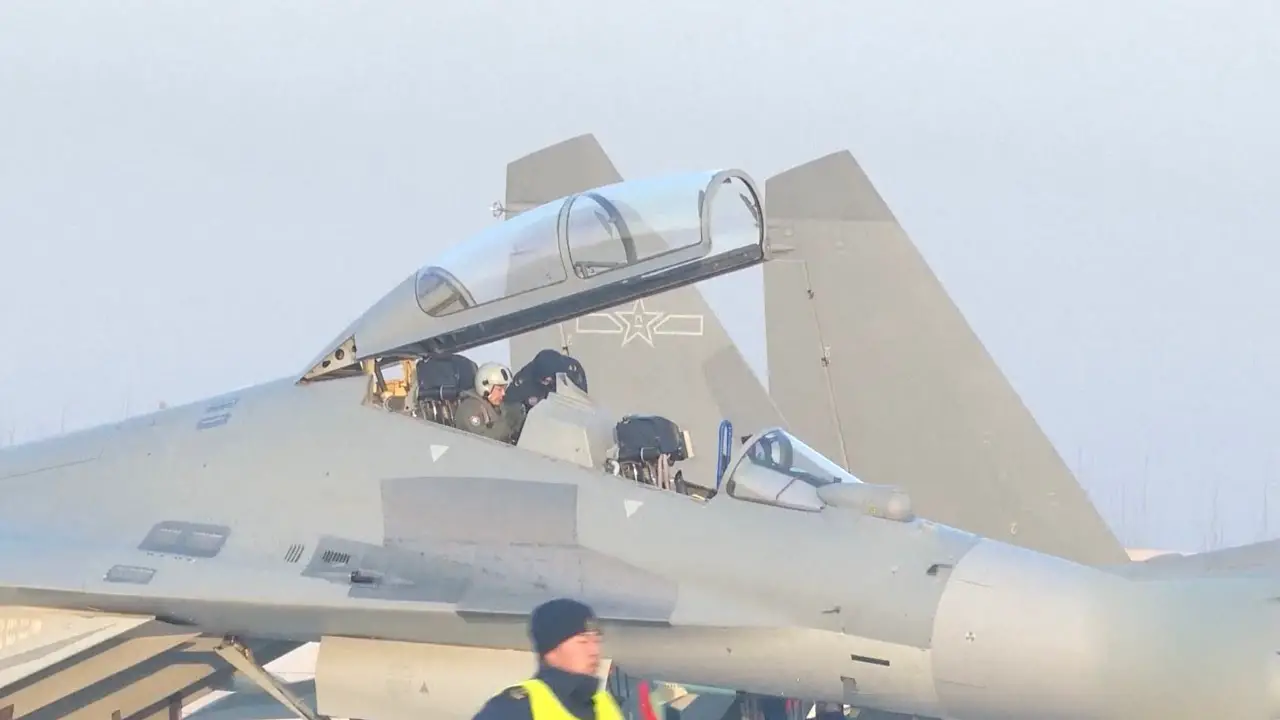China’s state broadcaster CGTN (China Global Television Network) reported that the Chinese People’s Liberation Army (PLA) Air Force recently organized a short-ranged aerial combat exercise between two generations of the China-developed fighter jets J-16 and J-20. Dozens of J-16 and J-20 fighter jets took off from a military airport in northwest China to carry out confrontational training centering on fighting for air supremacy. Experts said the dogfight was a comprehensive training method aimed at eliminating enemy aircraft once they get into the pilots’ visual range.
The Shenyang J-16 is a Chinese tandem-seat, twinjet, multirole strike fighter developed from the Shenyang J-11 (itself derived from the Sukhoi Su-27) and built by Shenyang Aircraft Corporation. It is operated by the People’s Liberation Army Air Force (PLAAF). The J-16 is equipped with an AESA radar and is powered by two Chinese Shenyang WS-10A turbofan engines. Weight is reduced through greater use of composite materials. J-16 units have received radar-absorbent paint to reduce its radar signature, and enhance its Suppression of Enemy Air Defenses (SEAD) capability in conjunction with electronic support measure pods.
The Chengdu J-20, also known as Mighty Dragon, is a twinjet, all-weather, stealth, fighter aircraft developed by China’s Chengdu Aerospace Corporation for the People’s Liberation Army Air Force (PLAAF). The J-20 is designed as an air superiority fighter with precision strike capability;it descends from the J-XX program of the 1990s. The J-20 is the world’s third operational fifth-generation stealth fighter aircraft after the F-22 and F-35. The main weapon bay is capable of housing both short and long-range air-to-air missiles (AAM; PL-9, PL-12C/D & PL-15 – PL-21) while the two smaller lateral weapon bays behind the air inlets are intended for short-range AAMs (PL-10).















